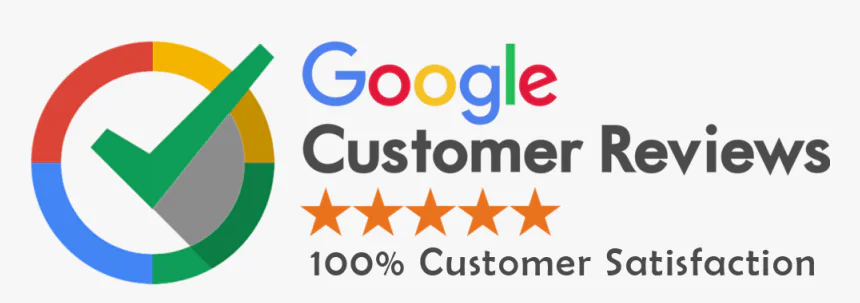Daily deal websites have become one of the most popular promotional tools for businesses trying to increase visibility and sales. Platforms like Groupon, Cobone, and LivingSocial attract millions of users every day by offering limited-time deals at deep discounts. Businesses see them as an opportunity to reach new customers quickly. However, while these platforms work effectively for product-based promotions, they are often less beneficial for service-oriented businesses.
Let’s explore in detail why daily deal sites perform better for products, highlight the common struggles of service providers on these platforms, and offer smarter strategies for service businesses.
The Tangibility of Products Creates Confidence
Products are tangible. Customers can see them, touch them, and easily compare them with alternatives. This sense of certainty gives buyers confidence to act fast when they see a deal. For example, a discounted smartwatch can be evaluated based on its specifications, features, and price compared to other options.
On the other hand, services are intangible. A discount on a haircut or a coaching session may sound appealing, but customers cannot fully understand the quality or experience until after the service has been delivered. That uncertainty leads to hesitation.
Fixed Pricing Makes Product Deals Easier to Trust
Products typically come with clear, fixed pricing. A $100 smartwatch offered for $60 is easy to understand. The perceived value is transparent. This clarity plays a huge role in motivating buyers to complete a purchase quickly.
Services, however, often come with variable pricing. For example, a home cleaning service may depend on the number of rooms, the square footage, and the level of cleaning required. Customers may struggle to judge the true value of the discount.
Inventory Management and Scalability
Products can be easily managed in terms of stock. If a business has 200 headphones in surplus, it can put exactly that quantity on a daily deal platform. Once the inventory runs out, the offer ends. There are no complications in fulfilling the order.
But services rely on human effort. A hair salon or dental clinic can only serve a certain number of people per day. When deals go viral, the sudden surge of new customers can lead to overbookings, long wait times, and eventually, unhappy clients. Services cannot scale like products can unless the business hires more staff or extends hours – both of which add to costs.
Impulse Buying Works Well for Products
Daily deal sites are designed to trigger impulse purchases. The countdown timers, urgent phrases like “Limited Time Only,” and big discount banners all create a sense of urgency. This strategy works best for products that require little thought or planning.
Services usually demand more consideration. A person may not buy a massage package on impulse. They will think about scheduling, location, whether the provider is trustworthy, and whether they really need it.
Redemption Issues and Expiry Pressures
When customers buy products through daily deals, they receive the product and the transaction ends. But for services, the process continues after the purchase. Customers have to book appointments, often within a specific time window. This creates friction.
For example, if 500 people buy a discounted dental cleaning but only 100 appointment slots are available per month, chaos is inevitable. This often results in customer frustration and bad reviews.
Inconsistency in Service Delivery
Product quality can be standardized. Every buyer of the same product receives exactly what they expected. However, services depend heavily on the provider. The skill, mood, or fatigue level of the staff can impact the service quality.
A restaurant offering a discounted dinner deal may find it difficult to maintain quality during peak times when too many deal customers show up. This damages the overall experience.
Negative Impact on Brand Reputation
Brands that want to position themselves as premium or high-end can suffer if they use deep discounts to promote services. A luxury salon offering a 70% discount may attract deal-hunters, but later struggle to retain full-price clients.
Once a service gets associated with cheap deals, it becomes difficult to shift back to regular pricing without losing customers.
Overcrowded Service Listings
On platforms like Groupon, service-based listings often appear side-by-side with dozens of similar offers. A customer searching for a massage might find 40+ options. This makes it hard for any one provider to stand out.
Products, on the other hand, have clearer differentiators like color, features, or brand, making it easier for a listing to attract clicks.
Absence of Geo-Targeting for Local Services
Most services are location-specific. A facial, spa, or home repair service cannot be delivered outside the provider’s operating zone. Daily deal platforms are often not optimized for precise geographic targeting. This results in people buying deals they later cannot redeem due to distance or availability.
Products can be shipped nationally or globally. That makes product deals much more flexible and scalable.
Refund Complexity for Services
Product returns are easy. If the item is faulty or not liked, the customer can send it back. But services are trickier. Once a service has been delivered – even poorly – it cannot be returned. This creates disputes, refund challenges, and chargebacks.
Additionally, some service providers have unclear refund policies, causing customer distrust.
Technical Integration and Booking System Failures
For service-based businesses, deal redemptions need to be synchronized with their calendar or booking system. Many businesses do not have automated systems, which leads to errors. Customers who call to schedule might face delays or confusion.
A product purchase, however, can be handled by a simple shopping cart.
Long-Term Customer Value is Often Low
People attracted to heavy discounts are usually deal-hunters. They may try a service once and never return, especially if the price goes back to normal. That makes customer acquisition costlier for service providers compared to product sellers.
Businesses offering products can upsell or cross-sell items once the customer is in their ecosystem, leading to higher customer lifetime value.
Limited Success for B2B Service Providers
Daily deal sites cater mostly to individual consumers. B2B services like software consulting, graphic design, or business coaching rarely succeed on such platforms. These services are high-touch, custom, and involve longer decision-making cycles.
B2B buyers rely more on reviews, portfolios, and referrals than discounts.
Misalignment Between Expectations and Experience
When customers buy a heavily discounted service, they may expect the same treatment as a full-price client. But providers may deliver a shortened or scaled-down version. This mismatch leads to disappointment.
If the client experience feels cheap, it reflects badly on the brand and leads to negative word of mouth.
What Should Service-Based Businesses Do Instead?
Daily deal platforms may not be the best option for services, but there are alternative strategies that work much better:
Referral Campaigns
Encourage satisfied clients to refer friends by giving them rewards like free add-ons or discounts on their next visit.
Loyalty Programs
Reward repeat customers with exclusive perks. This builds long-term relationships and steady income.
Social Media Engagement
Use platforms like Facebook, Instagram, and TikTok to post behind-the-scenes videos, client testimonials, before-and-after shots, and Q&A sessions.
Local SEO Optimization
Appear in local search results by registering on Google My Business, collecting positive reviews, and using local keywords.
Content Marketing
Write helpful blogs, make videos, or host webinars to showcase your service quality, knowledge, and unique offerings.
Limited Offers with Booking Control
If running a discount, limit it to weekdays or off-peak hours. Also, ensure your calendar system can handle bookings smoothly.
Collaborations and Bundles
Partner with nearby businesses. For example, a salon can collaborate with a nail bar to offer bundled packages that share the client load.
Final Thoughts
Daily deal websites are great tools when used for what they’re best at: selling products. Products are visible, easily priced, scalable, and impulse-friendly and compelling product Description. Services, on the other hand, face hurdles of overbooking, mismatched expectations, quality control, and branding risks.
Service-based businesses must carefully evaluate the risks before launching promotions on these platforms. Instead, focusing on building relationships, offering localized and personalized experiences, and using smart online marketing can deliver better, more sustainable results.
Choosing the right marketing channel can be the difference between gaining loyal customers or losing brand value. Products and services don’t perform the same way on every platform – and that’s a decision every business needs to make wisely.
Daily Deal Websites have gained immense popularity as platforms offering time-limited discounts. These sites attract both customers looking for bargains and businesses seeking exposure. However, they tend to be more effective for promoting products than services. Here, we explore why this is the case and provide actionable insights for businesses considering these platforms.






